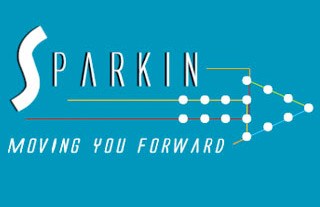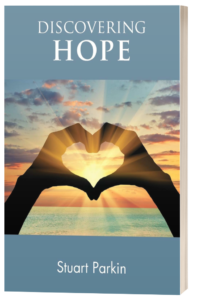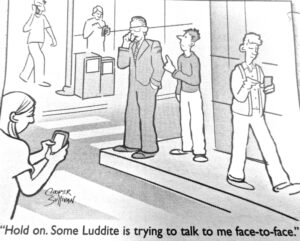Adaptability = Career Success?
A 2017 survey suggests that, all other factors remaining constant, hiring will place a much greatter emphasis on your adaptive ability as a means of determing whether you get hired. The report by talent experts Right Management, highlighted that by 2018, 91% of HR managers thought that one of the primary considerations in hiring individuals would be based on their ability to change. Meanwhile, 53% of employees believed that their ability to deal with change, or their adaptability, would be key for for future success. What might explain this discrepancy?
‘It is not the strongest or the most intellient who will survive but those who can best manage change.’ Charles Darwin
Alessandra and O’Connor in their book ‘The Platinum Rule,’ suggest that adaptability consists of two aspects, ‘flexibility’ or our willingness to change and ‘versatility,’ our ability to change. Perhaps the latter points more to experience and intelligence?
Flexibility, refers more to your willingness to pivot or, to focus your energy/ability to embrace rather than resist change. It is this ‘ability’ of acceptance, the degree to which you are more a ‘cup half full’/optimistic type, which may well explain who actually adapts best. If this is true then expect to be tested for your optimism quotient or ‘OC’, at a job interview in the near future.
What do you think?
Articles and commentary that might be of interest…
- Adaptability is
- Is it possible to hire for adaptability?
- Why learning adaptability will matter in the future workplace
- Adaptability – The new competitive advantage
- Success – The biggest benefit to being adaptable
- 14 Signs of an adaptable person
- Adaptability and Flexibility
- The Seven Skilsets Employers Want
Increasingly It Is Your Adaptability That Will Determine Your Success
Neophilia or ‘to like anything new’, might be something we can all relate to dependent on the context. New places to visit, new foods to eat, all good when they expand who we are, sometimes literally!
But what about new things or circumstances when there is much more at stake, such as new management or new systems at work which may impact our job security? Perhaps a Luddite after all?
What’s typical, most of us don’t like uncertainty, when the stakes are high, when we have much to lose.
Should we even care about how adaptable we are unless we are explicitly assessed for it when seeking employment?
A 2017 report by talent experts Right Management highlighted that 91% of HR managers thought that by 2018, individuals would be recruited for their ability to change/adapt. Meanwhile, 53% of employees believed adaptability, would be a key driver for future success. What might explain this discrepancy? And, given the stated direction of HR managers, what are the keys to you and those you care about developing effective adaptive capability?
‘It is not the strongest or the most intelligent who will survive, but those who can best manage change.’ (Darwin)
First we need to understand adaptability or, ‘the nature of changing or creating modification in oneself to suit a new environment.’
Alessandra and O’Connor in their book ‘The Platinum Rule,’ suggest adaptability consists of two aspects, ‘flexibility’ or our willingness to change and ‘versatility,’ or our ability to change. Perhaps the latter points more to experience and intelligence (IQ) and emotional (IQ) that people believe they possess in sufficient quantity.
Flexibility however, refers more to your willingness to pivot or, to focus your energy/ability to embrace rather than resist change. It is this ‘ability’ of acceptance, the degree to which you are more a ‘cup half full’ optimistic type, which may well explain who actually adapts. If this is true then expect people to be talking much more about optimism quotient’s, or ‘OQ.’
From a personal perspective, having clear options moving forward post-change, (internal or external) which whether exercised or not, can enhance our state of mind, can make us feel less trapped by a changing situation and therefore better able to adapt.
Arguably those with foresight, do and continue to plan for change, anticipating what might happen and prepare themselves accordingly, but not everything can be planned for.
And, even if we did anticipate, is planning and recognizing the same as the ability to actually cope and proactively adapt to change, particularly when it is sudden.
What do you think?
For more information on this subject see the newsletter on the subject https://bit.ly/2ExHOGj and past newsletters too. Feel free to sign up for future letters.
Becoming one of your agency’s ‘most valuable’ employees
Camels walking through the ocean…That doesn’t happen at least until I saw it, I didn’t believe it. Something almost as unusual as the individual on the career express train that never derails; The individual that’s never been on the wrong side of an agency restructure. Like the camel it’s unusual but still possible. Some potential keys:
Know thyself – Know your strengths and where you can add value and continuously develop them. Have an integrated mindset but be niche a speciality too.
Team player – Help others in the agency develop. Generously share your skills and expertise.
New Business – The lifeblood of any agency – Getting involved in new business and being good at it, both raises your profile and perceived value.
Money – One of the best ways to be valuable to the agency is to be invaluable in helping it acquire and retain income.
Wow factor – Ensure that people enjoy working with you/make them feel good – You do this through being easy and fun to work with but also because you create and innovate.
Over and above – Word hard but where you can and even though already busy, aim to do more than is expected of you.
Active assessment – Know your KPI’s and your clients. Be active in self assessment. Don’t rely on others to do this.
Future mindset – Plan ahead. Know what you want to experience/learn in your new job in preparation for the one after. Make yourself a ‘shoe in’ for it!
Market value – Be aware of your external market value. Be aware of alternative career opportunities; This will give you more confidence in your current role.
Mix it up – Taking time off allows you to sustain focus, energy and passion
Agency to Client-Side Means What?
At some point many of you consider a client-side move very often hoping for decision making authority or the ability to impact brand beyond comms’, Some of your peers that have made the move to the client-side kindly told me what the key difference is working for corporate America.. A few common themes emerged:
Ownership of work – “This isn’t a business I’m dipping my toe in to for a second, I’m responsible.” (Jackie Jantos, Spotify)
Skill Recognition/Proving Yourself – “Once client-side, planning speciates pretty quickly and is very different for a number of reasons not least because of an understanding of what planners do.” (Magnus Bair, HP Enterprise)
Iterative Nature of Work v Discrete projects – “On the client-side things never seem to be done” (Scott Reddick, Charles Schwab)
Broader more complex work focus – “You need to be able to work with big business and big processes.” (Julian Cohen, Constellation Brands)
That said, what do you think?
Stuart
Articles and commentary that might be of interest…
- Marketing Careers. Should you be an agency or a brand marketer?”
- Going In-House. Why You Should Take Your Agency Expertise In-House. AdAge – 09/17
- Developing your skill set on the other side of the tracks – CMO 08/17
- Hell on Earth or Nirvana? Client-Side Strategic Planning – Stuart Parkin 10/16
- From agency to Client. Making the switch – Campaign 07/16
- Working for a marketing agency versus client-side – Smart Insights 12/15
- Client Side Versus Agency Side marketing Careers – Morgan McKinley 06/16
- Instability and lack of calibrated pay among the key reasons agency folk head in-house – Marketing 01/17
www.sparkinsearch.com
Stuart: 646-280-5147
Strategic Planning Jobs – Where are they going?
As communications move from mass to personalized, data specialists and consultancies have been gaining ascendancy but it’s unclear exactly how things will play out. There is in fact risk that most agencies, as well as consultancies, are to some extent failing, “The big consultancies have underestimated the value of creativity while agencies have under exploited the value of business analytics” (Ivan Pollard, SVP Coca Cola).
Agencies have for some time now been adjusting their models to incorporate data analytics in an attempt to ensure that creative insight provides measurable benefits.
Clients meanwhile, increasingly are moving to control their data, which will create more strategic opportunities on the client-side.
As the agency business is reintegrating its offering opportunity will exist increasingly for generalists.
What do you think? For more on the trends, some articles to provide context.
Stuart
Articles and commentary that might be of interest…
- How marketing is changing and why agencies are not keeping pace 5/17
- Consultancies – The race is on! 4/17
- Consultancies are buying agencies. What does it mean for marketing?
- New business trends. How they affect digital agencies
- Programmatic trends: Advertisers still relying on agencies
- Creative industry report 4/17
- Combating the rise of in-house agencies
- A CMO’s view: How Intel head of creative is building the brand in-house















